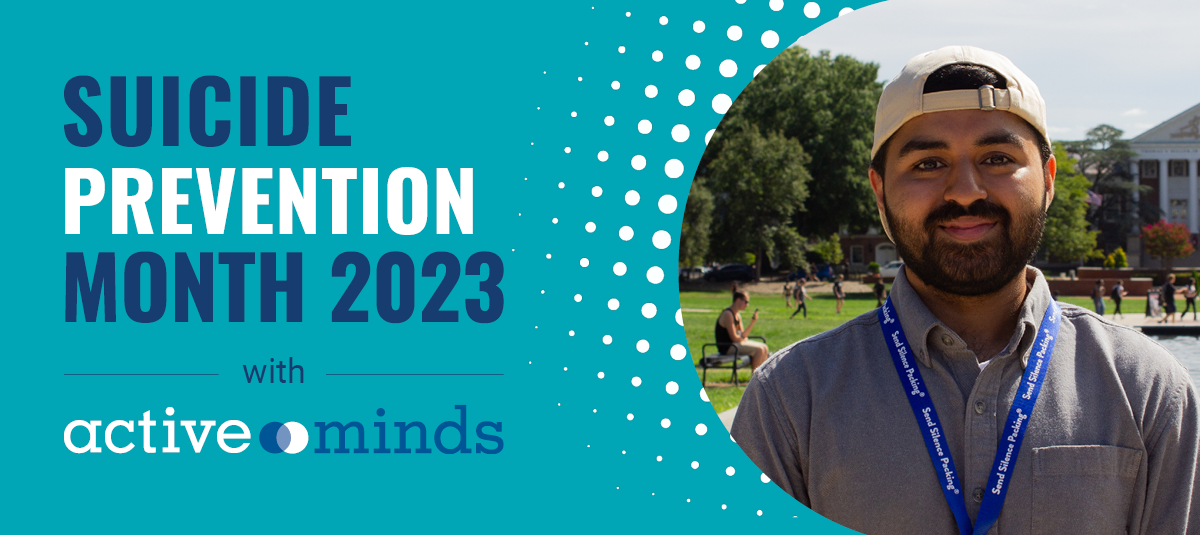Last year, more than 49,000 people were victims of suicide, the highest ever recorded in U.S. history. Although talking about mental health and suicide can be challenging, it is a conversation that we can’t avoid. Every year, too many young lives are impacted by mental health challenges, making suicide a significant concern. That’s where what Active Minds calls “Youth Champions” come in — parents, guardians, teachers, administrators, and community leaders alike — who all have an essential role in suicide prevention. As the current president of an Active Minds Chapter and a member of the Active Minds Student Advisory Committee, I’d like to share how adults can build and uphold a positive mental health culture and explain why it is a critical part of suicide prevention:
- Dedicate time to educate yourself: Learn how you, as an individual, can best support youth experiencing a mental health challenge. A simple tool such as A.S.K. can be incredibly valuable in allowing someone to feel heard and valued. Practice adjusting your word choice to navigate tough conversations with ease. It is just as important to understand the warning signs of suicidal ideation and be aware of available resources that you can tap into. These resources equip adults with skills that convey empathy and provide informed support.
- Create safe spaces for communication and support: Adults should use the resources at hand to create environments where young individuals feel comfortable discussing their thoughts and emotions without fear of judgment. Being non-judgmental, respecting privacy, and ensuring confidentiality can encourage open dialogue, which leads to early intervention and reduced mental health stigma. Educators and employers, offer to be a resource to your students and employees in your verbal introduction and documentation, including job descriptions and syllabi, and make it clear that you are a trusted space and can help those you interact with find help when needed.
- Learn how to help others develop a sense of resilience: Resilience is crucial for youth mental health and suicide prevention. Adults can help young people build resilience by fostering problem-solving skills, adaptability, and effective coping mechanisms. Encouraging the youth around you to learn from setbacks and develop a growth mindset empowers them to navigate life’s challenges. Be cognizant of the language you use when talking about mental health and its challenges, and focus on empowering youth and young adults rather than critiquing them when it comes to struggles with mental illness.
- Collaborate with student advocates: Youth Champions who collaborate with student advocates, such as peer support groups and student-led mental health initiatives, also enhance suicide prevention efforts. This past August, I had the pleasure of working with fellow mental health advocates, youth and adults alike, to bring Send Silence Packing® to my university’s campus. By working together, we transformed a section of campus into a supportive community. It encouraged other campus community members to come together and support the cause, like the football team and the campus counseling services. Through collaboration, adults and young advocates amplify their impact, ensuring that youth voices shape mental health programs and support systems, strengthening the collective effort to prevent youth suicide.
- Influence policy change: Leverage your position at work, school, or community to shape reform for suicide prevention. For example, Youth Champions can advocate for implementing evidence-based mental health education programs like Kognito, which educates students, peers, and other adults alike on how to support one another in times of struggle. By championing the adoption of these programs, adults can play an integral role in incorporating mental health education into work competencies and school curriculums. They can also initiate engagement between mental health experts, higher leadership, and youth advocates to design large-scale mental health campaigns that help turn suicide prevention from a concept to a community initiative. Proactive approaches like these pave the way for a more compassionate and informed society, where the well-being of all, especially young individuals, is prioritized and suicide prevention efforts are strengthened.
Every September, we take a moment to remember the lives lost to suicide and reflect on what we can do to ease this problem. This Suicide Prevention Month and beyond, I encourage you to pledge to be vigilant, compassionate, and informed allies for our youth. Together, we can make a lasting positive impact, offering hope, strength, and the support needed to save young lives.




